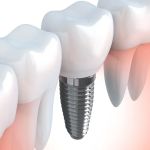Why Regular Dental Check-Ups are Crucial
Dental health is often an overlooked aspect of overall well-being, but regular dental check-ups are essential for maintaining a healthy smile. Many people only visit the dentist when something feels wrong, such as a toothache or sensitivity. However, this reactive approach can lead to more severe problems down the road. Regular dental check-ups are not just about cleaning teeth, but they also help detect potential issues before they become major concerns, saving you time, pain, and money in the long run. By scheduling regular visits, you're taking a proactive step toward preserving your oral health and preventing serious conditions.
How Often Should You Visit the Dentist?
So, how often should you go to the dentist? The answer typically depends on your individual oral health needs. For most people, a dental check-up every six months is sufficient. This allows the dentist to monitor the condition of your teeth and gums, perform necessary cleanings, and identify any potential issues such as cavities, gum disease, or oral cancer. However, some people may need more frequent visits depending on their oral health status. For example, individuals with gum disease, those who smoke, or those with a history of dental problems might require check-ups more often.
The Risks of Skipping Dental Check-Ups
Skipping regular dental visits can lead to a host of oral health problems. The most common consequence of neglecting dental check-ups is the development of cavities, which are often painless until they become advanced. Gum disease is another significant risk that can develop without regular cleaning and check-ups. Gum disease starts as gingivitis and can progress to periodontitis, which may result in tooth loss. Additionally, dental issues like oral cancer, which can be life-threatening if undetected, may not present noticeable symptoms early on. Without regular check-ups, these problems can remain hidden and worsen over time.
The Benefits of Regular Dental Visits
There are numerous benefits to maintaining regular dental check-ups. One of the most obvious is the prevention of cavities and gum disease. Regular visits allow the dentist to perform professional cleanings, removing plaque and tartar that brushing and flossing miss. These cleanings help keep your gums and teeth in optimal condition. Additionally, a dentist can catch problems like cavities, cracks, or infections early on, preventing them from turning into major health issues. Regular dental visits also help you maintain fresh breath, as professional cleanings remove food particles and bacteria that contribute to bad breath.
What Happens During a Dental Check-Up?
During a standard dental check-up, you can expect a comprehensive examination and cleaning. The dentist will examine your teeth for cavities, signs of gum disease, and other oral health issues. X-rays might be taken to detect problems below the surface, such as impacted teeth or bone loss. After the examination, a hygienist will typically perform a thorough cleaning, including scaling and polishing, to remove plaque and tartar buildup. The dentist may also perform an oral cancer screening and provide personalized advice on how to improve your oral hygiene at home. Depending on your needs, you may receive fluoride treatments or other preventive measures.
How to Make Dental Check-Ups Part of Your Routine
Making regular dental check-ups part of your routine can be simple and stress-free. Start by scheduling your appointments well in advance, so you don’t forget to book them. Many dental offices offer reminders via text or email to help you stay on top of your appointments. If you're nervous about going to the dentist, ask about sedation options or look for a dentist who specializes in treating patients with dental anxiety. Finally, make your dental health a priority by maintaining a good oral hygiene routine at home. Brushing twice a day, flossing daily, and using mouthwash will complement the care you receive during your dental visits.
If you're looking for a reliable dentist to help you maintain your oral health, visit [Dentistry Toothtruth](https://www.dentistrytoothtruth.com) to find expert care and services tailored to your needs.







 Calder Dental4.0 (5 review)
Calder Dental4.0 (5 review) Dental Ben's4.0 (171 review)
Dental Ben's4.0 (171 review) Northland Family Dentistry4.0 (111 review)
Northland Family Dentistry4.0 (111 review) Sheats Endodontic Group4.0 (148 review)
Sheats Endodontic Group4.0 (148 review) Ford Signature Dentistry4.0 (300 review)
Ford Signature Dentistry4.0 (300 review) Prosthodontics of Madison - Kendra Schaefer, DMD & Christine Roenitz, DMD4.0 (25 review)
Prosthodontics of Madison - Kendra Schaefer, DMD & Christine Roenitz, DMD4.0 (25 review) The Importance of Oral Health Education During Pregnancy for a Healthy Pregnancy
The Importance of Oral Health Education During Pregnancy for a Healthy Pregnancy Best Tips for Brushing Your Teeth Properly for Healthy Gums: Essential Techniques for Oral Health
Best Tips for Brushing Your Teeth Properly for Healthy Gums: Essential Techniques for Oral Health Why Skipping Dental Checkups Can Lead to Bigger Oral Health Problems
Why Skipping Dental Checkups Can Lead to Bigger Oral Health Problems Advantages of Porcelain Dental Restorations
Advantages of Porcelain Dental Restorations How Can Diabetes Cause Tooth and Gum Problems? Preventing and Managing Oral Health Issues
How Can Diabetes Cause Tooth and Gum Problems? Preventing and Managing Oral Health Issues Healthy Habits for Promoting Good Oral Health and Hygiene: Tips for a Healthy Smile
Healthy Habits for Promoting Good Oral Health and Hygiene: Tips for a Healthy Smile